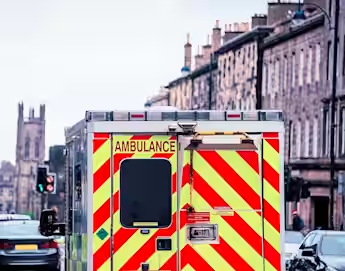An independent study, carried out by the Association of Ambulance Chief Executives (AACE), stated that delays in handing patients over to hospitals was potentially causing significant harm to patients.
The national target states all handovers should take place within 15 minutes. The sample reviewed comprised of 470 cases on one single day where handovers exceeded one hour – 4 times the national target. 8 out of 10 were assessed as likely to have experienced "some harm", while 1 in 10 were potentially classed as experiencing "severe harm". It regarded the delays as "unacceptable".
Examples included:
- A patient with epilepsy who had 2 seizures
- A patient where an Emergency Department doctor had to attend an ambulance outside to try and stop epilepsy related fitting
- A patient on oxygen therapy at significant risk of cardiac arrest
I recently settled a case on behalf of a family where delays in conveying their loved one to hospital resulted in his death. On that occasion, whilst paramedics attended at home and performed investigations, the results were not identified as being abnormal. Not only was my client not taken to hospital by ambulance, the family were actively discouraged from attending hospital at all. Sadly, he died following a cardiac arrest. It was accepted that he would not have passed away had he been taken to hospital when he should have been.
You can read about the case here.
For more information, please contact Arti Shah by calling 0330 460 6739 or by emailing arti.shah@fieldfisher.com.

